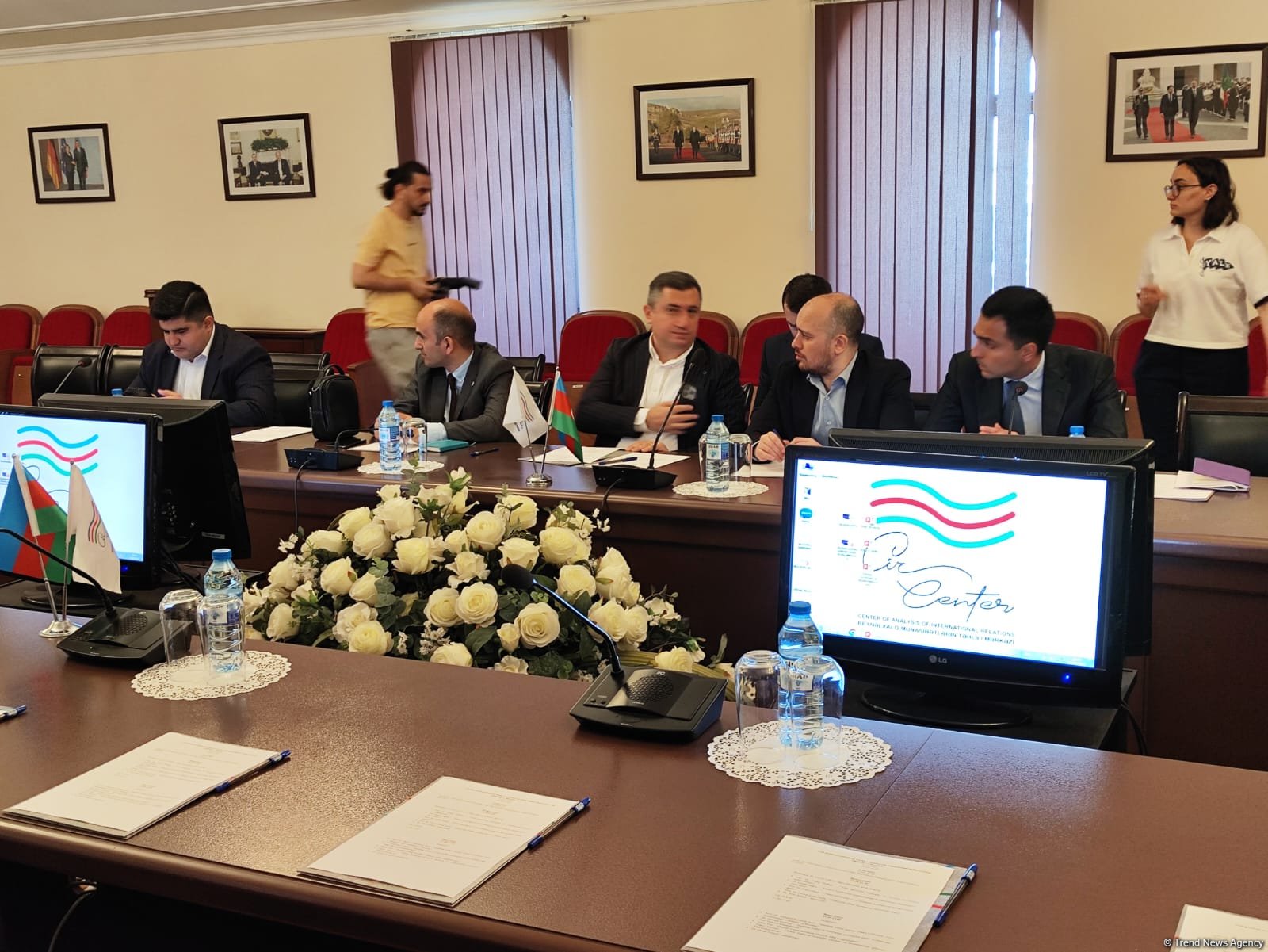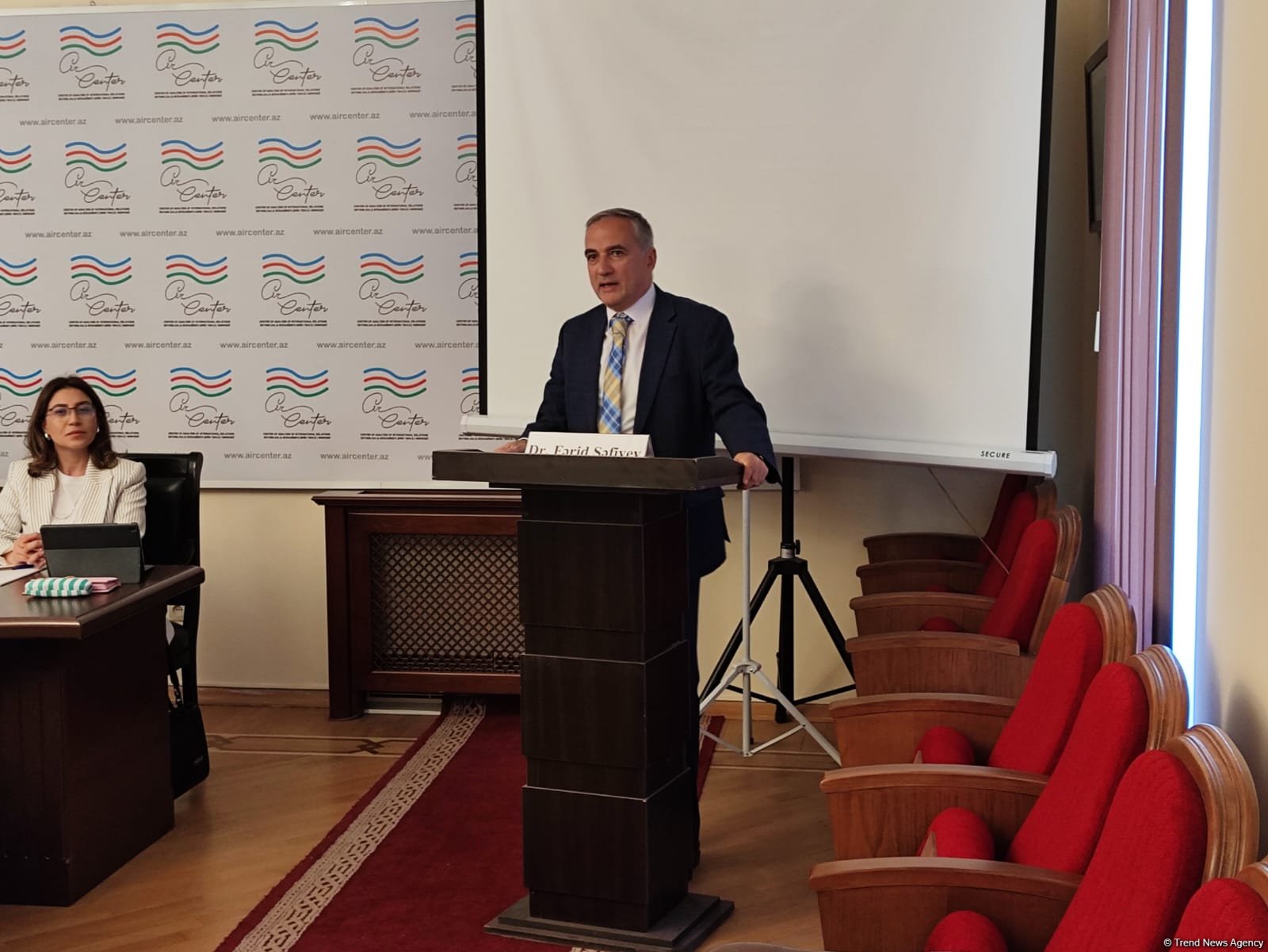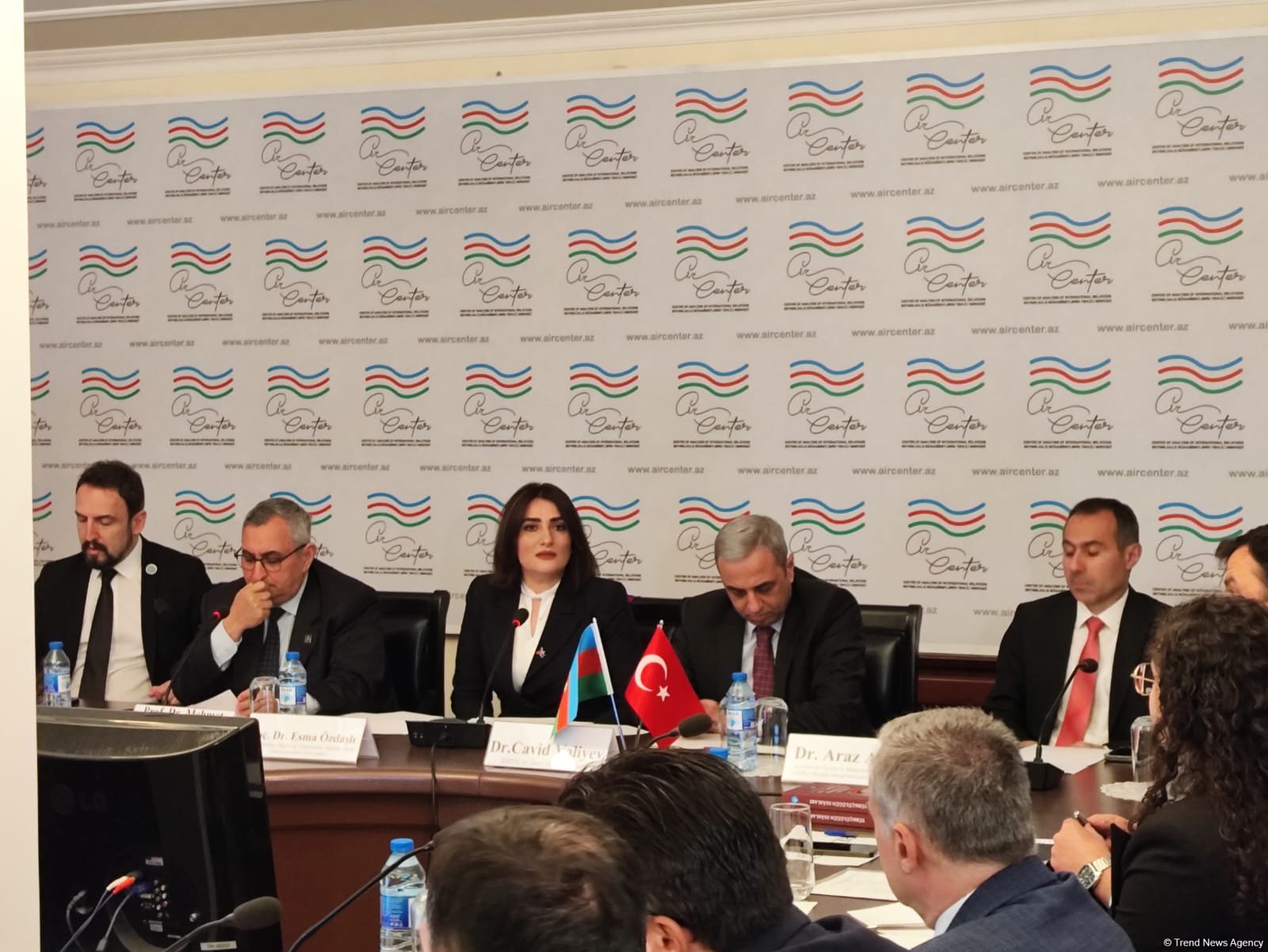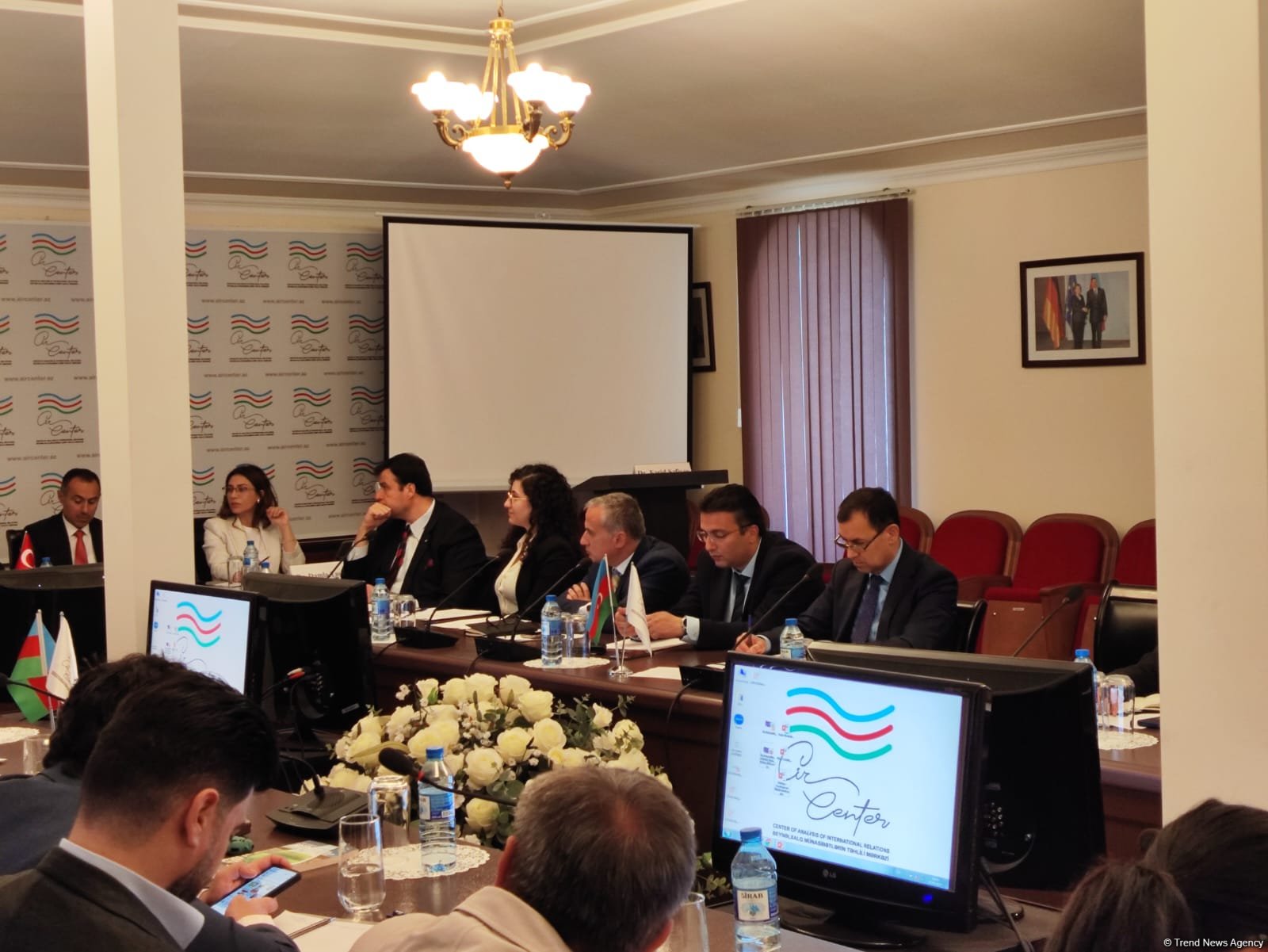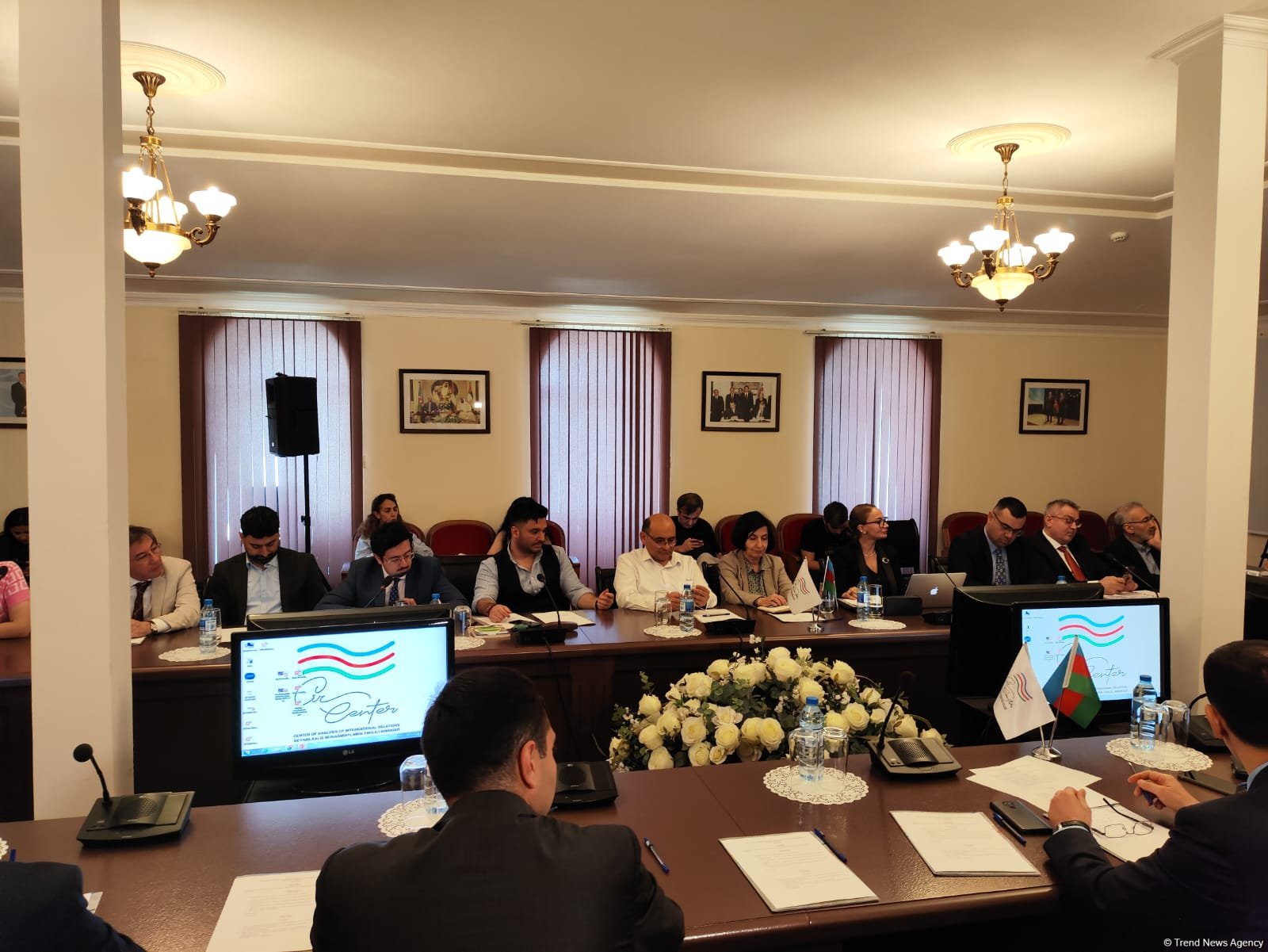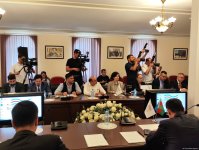BAKU, Azerbaijan, June 2. A high-level roundtable titled "Threats and Opportunities Created by New Geopolitical Realities for Turkish-Azerbaijani Relations" was convened in Baku on June 2, Trend reports.
Renowned analysts from Azerbaijan and Türkiye participated in the event and analyzed the impact of recent processes in the South Caucasus and the broader Eurasian region on relations between the two countries from various aspects.
The session opened with remarks from Farid Shafiyev, Chairman of the Center of Analysis of International Relations’ (AIR) board and ambassador, who noted that the conceptual foundation of Azerbaijani-Turkish relations was laid in the 1990s and that relations have been developing successfully for 30 years.
"There are no problems between the two countries. At the same time, we observe certain provocative steps in the international media, especially on social networks, in order to undermine our high-level relations. To prevent these undesirable situations, analysts from both countries should jointly implement effective measures," he said.
Speaking at the first panel moderated by AIR Board Member Javid Valiyev, Burdur Mehmet Akif Ersoy University lecturer, foreign policy commentator, and associate professor Esma Ozdasli analyzed the opportunities and challenges created by the new geopolitical order formed after 2020 for Turkish-Azerbaijani relations.
She said that the relations between the two countries differ from traditional interstate relations based solely on interests, and that cooperation is based on brotherhood and friendship.
Besides, she emphasized the growing importance of cooperation, especially in the fields of energy security and transport corridors.
Ankara Bilim University lecturer Damla Taskin touched upon the importance of optimizing the Türkiye-Azerbaijan alliance against the backdrop of trade wars and geopolitical turmoil. She also drew attention to the important role of inter-leader diplomacy in deepening cooperation between the two countries in 2021-2025.
Ankara Haci Bayram Veli University lecturer, Chairman of the Ankara Crisis and Policy Research Center-ANKASAM, Professor Mehmet Seyfettin Erol, touched upon the importance of the Baku-Ankara line from the perspective of regional and global stability. He spoke about the revival observed in Türkiye-Central Asia relations after the Karabakh Victory and how this cooperation creates both opportunities and potential risks.
Ankara Haci Bayram Veli University lecturer, foreign policy commentator, and associate professor, Levent Ersin Orallı, analyzed Türkiye's attitude towards the issue of Western Azerbaijan and how this issue was shaped in the socio-political discourse.
According to him, seminars on the subject should be organized in Türkiye, this topic should be developed in scientific literature, Azerbaijani literature should be translated into Turkish, and covered in the media correspondingly.
Araz Aslanli, Vice-Rector for Strategic Development Issues of the Azerbaijan Tourism and Management University (ATMU), emphasized that mutual trust and strategic synchronization between Azerbaijan and Turkey, as a common point of the presented speeches, directly affect all processes in the region.
The second panel discussed regional power balances, new diplomatic initiatives ,and relations with global actors.
Hilmi Demir, Director of the Middle East and Central Asia Institute of the TEPAV-Türkiye Economic Policy Research Foundation, made a comprehensive presentation on the groups that aim to undermine bilateral relations and the reasons behind this.
Gokhan Cınkara, a lecturer at Necmettin Erbakan University and a political commentator, assessed Azerbaijan-Iran-Türkiye relations and drew attention to Iran's strategic interests in the South Caucasus and the position of the Baku-Ankara line in this context.
In his speech, Alper Tan, Deputy Chairman of the Strategic Thinking Institute (SDI), recalled the turning points in Türkiye-US relations during the Donald Trump era and analyzed the indirect effects of Washington-Ankara relations on Azerbaijani-Turkish cooperation.
Tugce Tecimer, an expert at the Eurasian Studies Center (AVIM), editor-in-chief of the Armenian Studies journal, made predictions about possible scenarios of competition between Prime Minister Nikol Pashinyan and the opposition in Armenian domestic politics and analyzed the effects of this competition on the normalization process with Türkiye and Azerbaijan.
Orkhan Valiyev, Head of the Department of Political Science and Philosophy at Khazar University, emphasized that against the backdrop of the changing system of international relations, Azerbaijan and Türkiye can protect their national interests only through mutual strategic support, and in this direction, diplomatic coordination, security cooperation, and regional initiatives are of particular importance.
In conclusion, the roundtable participants stated that Azerbaijan-Türkiye relations are a model of alliance based on common national identity, historical ties, and cultural factors, as well as real security and economic interests. Current geopolitical changes necessitate further strengthening of this model and its focus on new areas..
Stay up-to-date with more news on Trend News Agency's WhatsApp channel








